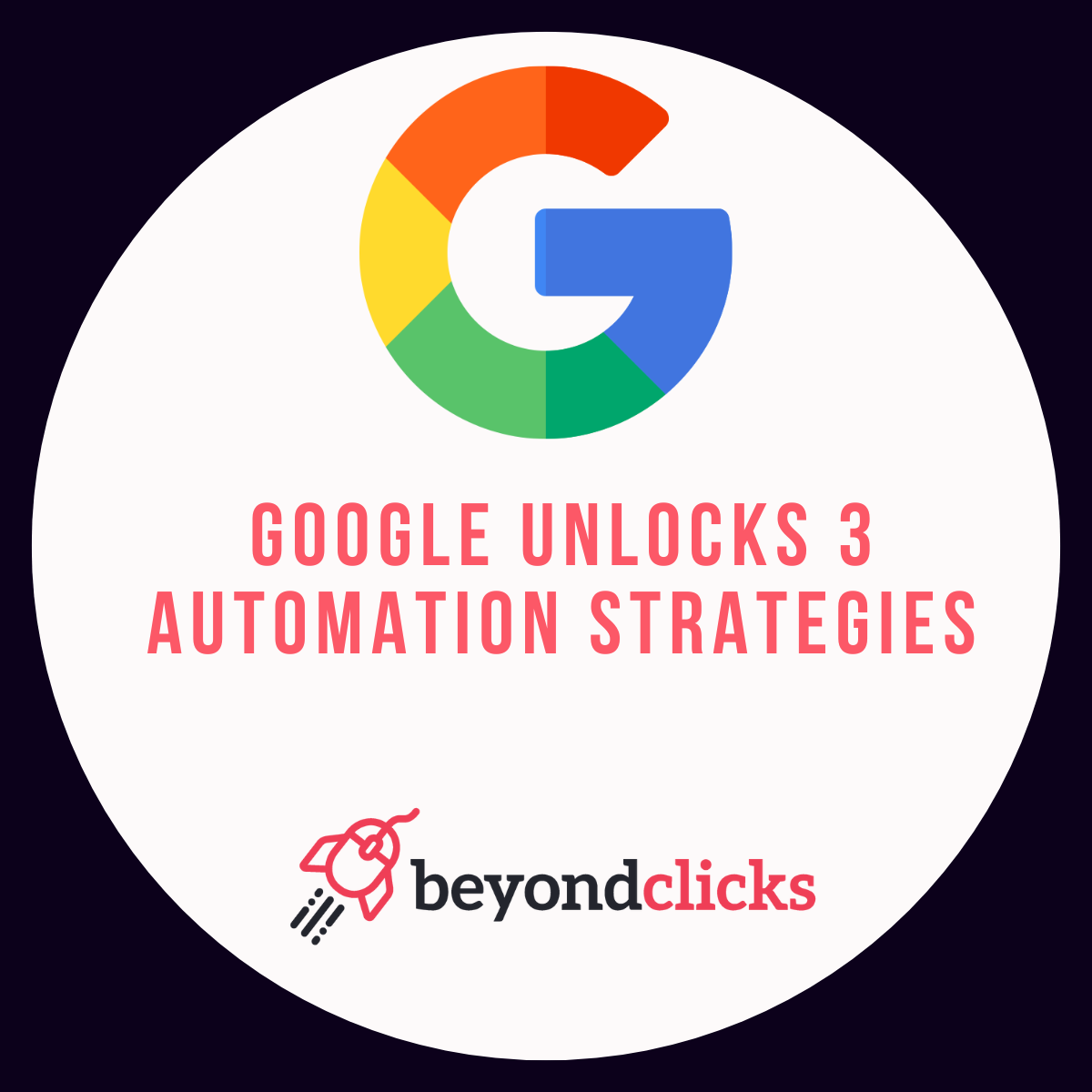Historically Beyond Clicks have recommended maintaining manual control over bids, particularly at the start of your Google ads campaigns to closely monitor performance.
However, in the ever-evolving world of digital marketing, Google has made vast improvements to its bidding strategies and as such have brought about 3 Automation strategies to assist you in meeting your marketing objectives online.
We still see the best results when a combination of automation with human controls / measures in place, and in some circumstances the path to automation is longer (based on the client / product).
The overall objective is to boost efficiency now that the automation strategies are seeing increases in conversion value.
1. Adopt A Broad Match Keyword Strategy:
The previous apprehension of using broad match keywords was that this wasted client spend and produced irrelevant clicks.
Smart bidding works in tandem with broad match keywords and means you are only included in bids on searches that will potentially perform for your business.
Providing you can successfully measure your conversions, broad match keywords will provide the most reach and in turn, conversions. However, if target impression share is your main goal – so for example on a brand campaign we would use phrase or exact match keywords will work better for your business.
Keyword grouping is essential with this strategy to allow Google to understand and select the most relevant keyword in each search query to then serve the most relevant ad.
Recent case studies that have tested these strategies claim that “Advertisers that switch their exact match keywords to broad match in campaigns using a target CPA can see an average of 35% more conversions.” Source. Google internal data, July 2021
Best Practice using Broad Match
- Ensure Broad and Exact keywords are in the same Adgroup.
- Build out your negative keyword lists to be best possible level, this will save you time and money.
- Broad match is only the best set up if you are using automated bidding, if you are on manual bidding stay away from broad match.
- To be able to use automated bidding strategy our opinion is you need to run manual first, this will help you establish benchmarks for cost per action and volume.
- The Broad match algorithm is now smart enough to stop generic keywords appearing on a brands’ broad terms.
- Phrase match is still available to advertisers. Our opinion is that Google is only keeping phrase match because of the advertisers using manual bidding strategies. For how long…who knows!
2. Using Smart Bidding:
Providing you continue to carefully monitor spend and changes in conversions, smart bidding is now considered a smart move for your Google Ads campaigns.
Smart bidding enables advertisers to quickly set up and manage your campaigns and works well with broad match keywords.
Testing smart bidding is essential in the first stages of rolling out these campaigns. In terms of measurement, it is also recommended to use data-driven attribution in conjunction with this strategy.
Advertisers must also be aware not to make too many changes at once as this can negatively affect campaigns. Beyond Clicks can help advise you on the best way to transition from manual to automated bidding.
3. Use Responsive Search Ads
Beyond Clicks have always recommended the inclusion of Responsive Search Ads. This format uses “multiple headline and descriptions to automatically build and serve relevant ads for every query based on auction-time signals”.
When switching from manual to automated strategies, using RSAs provide a middle ground for introducing staged automation whilst maintaining elements of control with you creating/selecting the headlines and descriptions you consider to be most relevant for your brand. RSA’s crawl and pull content directly from your site and landing pages to create relevant content from your assets.
Later in 2022, advertisers will be able to use responsive display ads to showcase brands on full screen portrait ad inventory. This includes mobile devices.
Our Conclusion:
Overall, using responsive search ads and Smart Bidding are designed to give you the best reach, relevance, and performance in any environment.
Whilst Google are keen to implement these strategies, agencies, advertisers, and clients are still nervous of this change. At Beyond Clicks, we know that broad match isn’t for everyone. However, these new experimental tools will certainly provide us with more detailed reporting to learn for the future.
Contact our team to find out if this is the correct strategy for your business. Or download the full Google guide [here]
